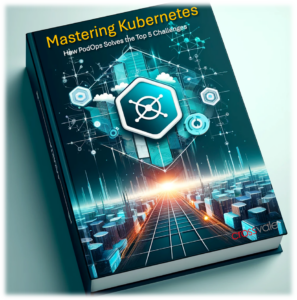Red Hat Enterprise Linux (RHEL) had humble beginnings in the 1990s as just Red Hat Commercial Linux, a mail order Linux distribution that was the first to introduce the RPM Package Manager to the public as its packaging format. Over time, it became the starting point of many other Linux distributions. Red Hat eventually discontinued its commercial version in 2004 and started releasing RHEL distributions for enterprise customers, while sponsoring the community-driven Fedora for the home environment. Since RHEL’s initial release, it has become the industry lead for enterprise Linux service distributions, providing the stability and features every enterprise needs in order to be successful. Many companies provide support for RHEL based enterprises with RHEL managed services to ensure a smooth operation of their infrastructure. This can help your company fully realize the power of RHEL. The following are the top four highlights of RHEL that make it such a powerful tool for any enterprise environment.
Red Hat Openshift Container Platform
OpenShift Container Platform is a set of containerization software that is offered from Red Hat as a platform as a service that is built around Docker containers and fully managed by Kubernetes. OpenShift allows you to rapidly create and deploy any application easily on virtually any infrastructure you have available. Docker and Kubernetes are proven open-source technologies, and OpenShift utilizes them expertly to help developers and IT operators create and deploy new apps quickly and consistently to keep your business expanding at the pace needed in the industry these days. OpenShift allows you to deploy existing workloads or microservice-based workloads effectively in a way that helps your business be successful. RHEL managed services providers can containerize many of your processes to improve the stability of your overall systems.
Red Hat Ansible Automation
When you need to implement IT automation into your enterprise environment, then go no further than Red HatⓇ AnsibleⓇ Tower. The RHEL managed service Ansible Tower allows you to scale IT automation, manage complex deployments, and speed up your company’s productivity in order to remain competitive. If your company needs a way to better manage and control IT infrastructure, then Ansible is what you are looking for. It provides a centralized visual dashboard, role-based access control, job scheduling, integrated notifications, and graphical inventory management. Ansible Tower also has its powerful REST API and CLI, which allow it to integrate easily into existing tools and processes.
Red Hat Smart Management
Red Hat Smart Management is a powerful set of tools allowing you to better manage your RHEL distributions and infrastructure. RHEL Smart Management utilizes Red Hat Satellite and Red Hat Insights to give you detailed information about any environment supported by RHEL and detect issues as they arise to allow you to remediate them immediately. Smart Management allows for more rapid scaling of your infrastructure, your deployments, and it improves your ability to manage your whole infrastructure. It also includes predictive analytics services to keep you ahead of security, performance, and available threats, minimizing downtimes. RHEL managed services providers can take advantage of Smart Management to keep your infrastructure running smoothly.
Global Standard for Enterprise Datacenters
Finally, one of the top highlights of RHEL managed services is the fact that it is the leader in enterprise Linux distributions throughout the world. Millions of datacenter servers every day are operating with RHEL, providing the security and stability needed for all types of business operations and transactions. RHEL also partners with practically every hardware platform company to ensure it will function to its full potential on any hardware you can throw at it. RHEL is thriving as the world transitions from traditional servers to cloud-based services. It is able to be deployed on physical systems, as a guest on the major hypervisors, or in the cloud. RHEL also provides complete LAMP stack, file and print services, and authentication services, ensuring it can be useful anywhere in your IT infrastructure.
If you are looking to deploy RHEL into your enterprise environment, or if you need additional IT support for existing systems, contact Crossvale today about their RHEL Managed Services support packages.

